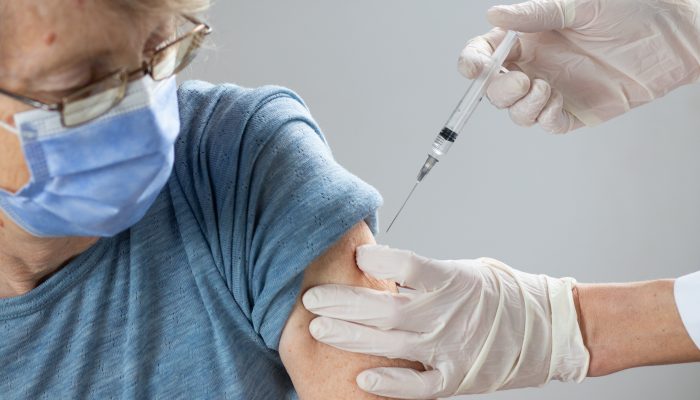Over 41,000 adults in the United States will be diagnosed with primary liver cancer this year. That’s more than half the seats in Lincoln Financial Field.
Chronic hepatitis B and C can both put you at much higher risk for developing liver cancer. In fact, more than 75,000 Philadelphians have had chronic hepatitis B or hepatitis C over the last ten years. That’s why we’re focusing on chronic hepatitis during this Liver Cancer Awareness Month.
Get tested
Most people with hepatitis B or C infections don’t show symptoms. So, you shouldn’t wait until you have symptoms to get tested. The Centers for Disease Control and Prevention (CDC) recommend hepatitis B and C testing:
- At least once for every adult.
- During every pregnancy.
- More often for people with ongoing risk factors.
You should also get tested if you have symptoms of hepatitis B or C infection. These include:
- Yellowing of the skin and eyes (also called jaundice).
- Fatigue.
- Fever.
- Abdominal pain.
- Vomiting.
You can find a screening location near you at phillyhepatitis.org.
Get vaccinated against hepatitis B
Getting the hepatitis B vaccine is important for your health and the health of others. Vaccination helps to reduce the spread of the virus and prevents long-term illnesses.
The CDC recommends hepatitis B vaccination for:
- All infants, children, and adolescents. Most infants get their first dose of vaccine at birth and complete the series in their first year.
- All adults between the ages of 18 and 59.
- Anyone 60 years old and up who has an increased risk of exposure.
Talk to your healthcare provider about the hepatitis B vaccine. If you don’t have a healthcare provider, you can search for one with our Primary Care Finder.
You can also find local pharmacies that provide the hepatitis B vaccine at hepcap.org.
Unfortunately, there’s no vaccine against hepatitis C.
Get treatment
There’s no cure for hepatitis B, but there are treatments. These can ease symptoms and reduce liver damage.
There is a cure for hepatitis C. This involves a course of medications over eight to twelve weeks. This medication has few to no side effects.
Learn more about prevention and treatment for hepatitis B and C at phillyhepatitis.org.
Get screened for liver cancer
Hepatitis B and C can both lead to liver cancer. The risk is higher for anyone who has had an infection, whether it’s current or in the past. If you’ve had a hepatitis B or C infection, you should get routine screening for liver cancer. The American Cancer Society recommends screening every six months for people at higher risk. Liver cancer screening includes a liver ultrasound and a blood test.
This October, make your liver health a priority. Get screened, vaccinated, and treated.
Looking for educational materials about viral hepatitis for your community or organization? Email hepcap.philly@gmail.com. Or, follow @hepcap on Instagram for the latest viral hepatitis news and events.




